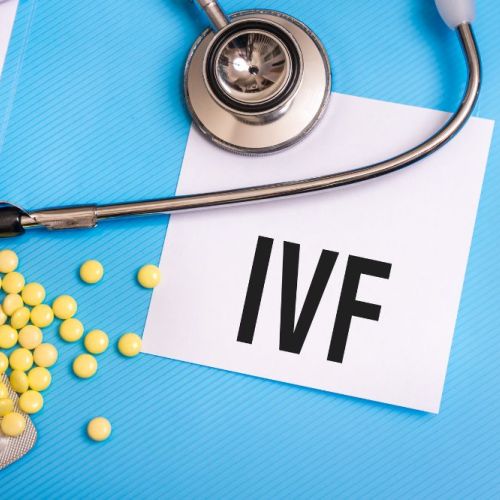What Is the Best Age to Freeze Your Eggs?

You’ve just launched your career, you haven’t found the right partner, or you’re embarking on a treatment protocol that may jeopardize your fertility. Whatever the catalyst is behind your decision to freeze and preserve your eggs for future use, there are some timing issues that can boost your chances of success down the road.
At California Center for Reproductive Health, under the experienced guidance of Dr. Eliran Mor, our team of reproduction specialists is invested in the family-building dreams of each of our Greater Los Angeles area patients. To ensure that you have the tools you need to realize your goals, we offer expert egg freezing services.
Here’s a look at how your timing can contribute toward a successful outcome when it comes to egg cryopreservation.
Younger may be better
As with many things in life, earlier is better when it comes to harvesting your eggs. When your body hits the biological clock button when it passes through puberty, it races into reproductive mode in earnest.
To give you a better idea of what happens, let’s put some numbers to your fertility. When you’re born, you have about one million egg-containing follicles, which is the highest number you’ll ever have. In fact, by the time you pass through puberty, you only have about 300,000 follicles to work with, thanks to natural attrition. And of these follicles, you will only ovulate about 300 of them during your reproductive years.
During your 20s, everything works smoothly and your ovulation produces healthy, viable eggs through its strong follicles. This process tends to peak by the time you hit 30, which is when you hit peak fecundability (the likelihood of conceiving per given month of trying — which is about 20%).
Once you’re in your 30s, your ovulation begins its slow decline as you march toward menopause. After the age of 35, your egg quality and number drops considerably, and by the time you’re 40, you have less than a 5% chance of getting pregnant per monthly cycle.
This doesn’t mean to say that women can’t start a family in their 30s or 40s — many have and will continue to do so. But if you don’t like playing such low odds, egg freezing offers you the opportunity to strike while the ovulation iron is hot.
Is there a best age for egg freezing?
We know this article is about the best age for freezing your eggs, but we’re going to back up and point out that every woman is different, with different considerations guiding their family-building dreams.
That said, if you’re in your 20s or early 30s, and you’d feel more comfortable with a little insurance when it comes to future pregnancy, now is the time for us to harvest your eggs. A big benefit of our egg harvesting services is that we’re able to gather far more than just one. By stimulating your ovaries using medications, we can collect up to 15 eggs for cryopreservation.
If you’re over the age of 35, and you’re facing a situation in which you’d like to preserve some eggs for the future, cryopreservation is not out of the question. To start, we can run some tests to check your ovarian reserve, and if we find it’s adequate, we can successfully harvest and preserve your eggs, as well.
If you have more questions about egg freezing and want to explore whether you’re a candidate, please don’t hesitate to give us a call. Or you can use the online scheduling tool to set up an appointment.
Eliran Mor, MD
Reproductive Endocrinologist located in Encino, Santa Monica, Valencia & West Hollywood, CA
FAQ
Reproductive endocrinology and Infertility is a sub-specialty of Obstetrics and Gynecology. In addition to managing medical and surgical treatment of disorders of the female reproductive tract, reproductive endocrinologist and infertility (REI) specialists undergo additional years of training to provide fertility treatments using assisted reproductive technology (ART) such as in vitro fertilization.
Reproductive endocrinologists receive board certification by the American Board of Obstetrics and Gynecology in both Obstetrics and Gynecology and Reproductive Endocrinology and Infertility.
In general, patients should consider consulting with an REI specialist after one year of trying unsuccessfully to achieve pregnancy. The chance of conceiving every month is around 20%, therefore after a full year of trying approximately 15% of couples will still not have achieved a pregnancy.
However, if a woman is over the age of 35 it would be reasonable to see a fertility specialist earlier, typically after 6 months of trying.
Other candidates to seek earlier treatment are women who have irregular menses, endometriosis, fibroids, polycystic ovary syndrome (PCOS), women who have had 2 or more miscarriages, or problems with the fallopian tubes (prior ectopic pregnancy).
Approximately 1/3 of the time cause for infertility is a female factor, 1/3 of the time a male factor, and the remaining 1/3 a couples’ factor.
At CCRH, we emphasize the importance of establishing a correct diagnosis. Both partners undergo a comprehensive evaluation including a medical history and physical exam.
Furthremore, the woman’s ovarian reserve is assessed with a pelvic ultrasound and a hormonal profile. A hysterosalpingogram (HSG) will confirm fallopian tube patency and the uterine cavity is free of intracavitary lesions. A semen analysis is also obtained to evaluate for concentration, motility, and morphology of the sperm.
Additional work up is then individualized to direct the best possible treatment option for each couple.
In vitro fertilization (IVF) is the process that involves fertilization of an egg outside of a woman’s body.
The process starts with fertility drugs prescribed to help stimulate egg development. In your natural cycle, your body is only able to grow one dominant egg, but with stimulation medication we can recruit multiple eggs to continue to grow. After about 8-10 days of stimulation, the eggs are surgically retrieved and then fertilized with sperm in a specialized laboratory. Fertilized eggs are then cultured under a strictly controlled environment within specialized incubators in the IVF laboratory for 3-5 days while they develop as embryos. Finally, embryos (or an embryo) are transferred into the uterine cavity for implantation.
Before deciding if IVF is the right choice, it’s important to sit down with an REI specialist to discuss available treatment options. For some people, other methods such as fertility drugs, intrauterine insemination (IUI) may be the best first choice treatment. At CCRH, we believe each individual couple is unique and not everyone needs IVF.
While not painful, the fertility medications may some side effects including headaches, hot flashes, mood swings, and bloating. The injection sites may also bruise.
Unfortunately, no. Many people think once they start IVF it’s a matter of time that they will be pregnant and have a baby. But according to national statistics per the Society of Assisted Reproduction (SART), on average 40% of assisted reproduction cycles achieve live births in women under age 35. The chances of success then continue to decrease with advancing age.
At CCRH, we employ only evidence-based interventions to ensure patient safety and optimal outcome. While we cannot guarantee a baby, we guarantee that you will receive the best, most advanced, personalized care to help you maximize your chance of a baby.
The average IVF success rate (success measured in live birth rate) using one’s own eggs begins to drop around age 35 and then rapidly after age 40. This is due to the decline in egg quantity and egg quality as a woman ages.
Our clinic’s success rate consistently beats the national average year after year.
Individual insurance plans often do not have any coverage for infertility treatments. If you have a group plan, you can call members services to see if they have coverage for infertility (including consultation/workup and IVF).
After your consultation with our REI specialist, one of our dedicated account managers with sit with you to go over the cost of treatment.




